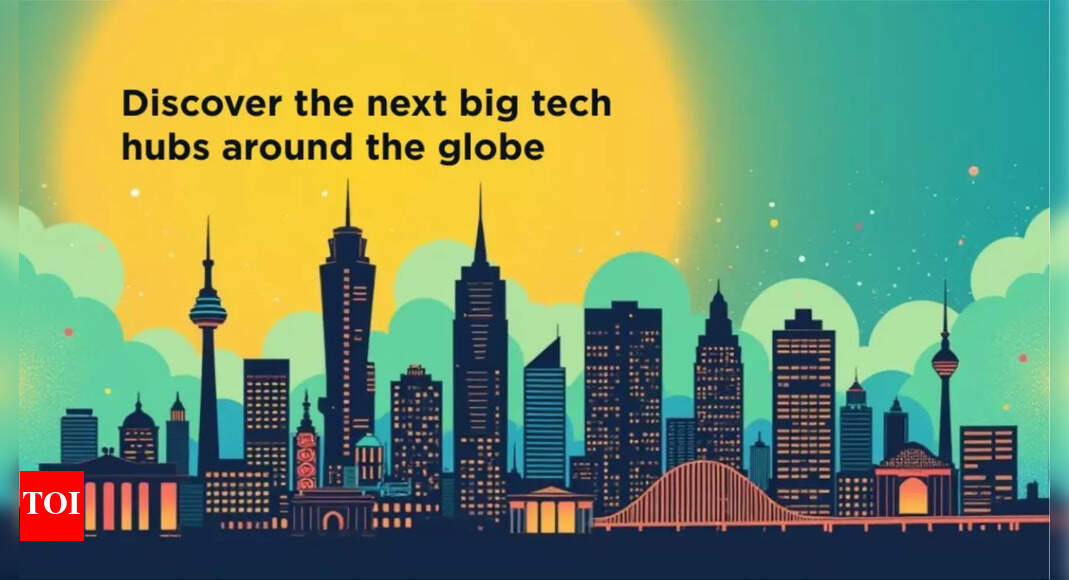
Silicon Valley’s dominance in the technology sector is facing unprecedented competition as emerging innovation hubs across the United States and globally are offering some compelling career alternatives. Research from leading institutions reveals that these new tech centres are not just copying Silicon Valley’s playbook, they are creating unique ecosystems that combine lower costs of living, specialised industry focus and rapidly growing opportunities for technology professionals who are seeking to build meaningful careers outside the traditional coastal tech centres.These emerging tech hubs outside Silicon Valley are rapidly reshaping the global technology landscape by offering vast career opportunities fuelled by vibrant ecosystems, lower costs of living and diverse innovation cultures. Recent research sheds light on the most promising alternative cities and their unique dynamics. A recent 2025 major study by Course Report analysing 222 million LinkedIn profiles reveals Austin in Texas, Raleigh in North Carolina and San Diego in California as fast-growing tech hubs in the United States. Austin stands out due to a robust job market, an active startup culture and notable presence of giant tech companies like Apple and Google. The study highlights the decentralisation trend that in 2025, a software engineer may be just as likely to work in Austin as in Silicon Valley, reflecting the shifts driven by affordability and quality of life.Global innovation rankings demonstrate that research-driven hubs like New York, Beijing and Boston combine academic excellence with strong startup ecosystems. According to the Global Innovation Hubs Index 2024 in Nature (2025), “New York leads in knowledge creation with the highest number of highly cited research papers”, while cities like Beijing and the Guangdong-Hong Kong-Macao Greater Bay Area are rapidly catching up thanks to large scientific infrastructure and top universities that fuel tech entrepreneurship.On the international stage, Indian cities such as Bangalore and Pune are emerging as global tech hotspots. NASSCOM and Deloitte’s 2023 report emphasizes how tier-2 cities in India “are reshaping the future of work and innovation with a thriving startup culture and increasing investments”, positioning India as a pivotal services and technology hub.Key features driving the success of these emerging hubs include dense communities of tech talent, strong university-industry collaboration and supportive government policies as explored in the World Bank’s 2023 report on boosting tech innovation ecosystems. It noted that “incentives for startups coupled with community building are critical for sustainable growth”. For students and early-career professionals, the strategic question is no longer “Can I only make it in Silicon Valley?” but “Which growing hub fits my skills, lifestyle and career goals?”
What makes a good alternative hub? (the checklist)
- Talent pool and universities — strong local
STEM graduates or research (helps startups recruit and collaborate). - Access to capital — VC presence or increasing deal flow (seed and growth funding). Startup Genome’s ecosystem value metrics track this closely.
- Industry specialisation/anchor firms — whether the city has a clear niche (AI, fintech, hardware, biotech). Clusters benefit from related industries.
- Affordability and quality of life — lower cost of living can attract talent and give startups runway.
- Policy and infrastructure — visa rules, accelerators, R&D grants and physical innovation districts matter. Brookings documents how such policies help.
- Connections to global markets — proximate HQs, international airports, or strong export channels help founders scale.
If a city ticks most of these boxes and is actively improving the rest, it is worth considering for a career move.
Hubs to watch
Here are seven places that look especially promising for building a tech career today by measures of funding, patents, talent, or policy:
- Bengaluru (India) — Scale and talent in software and AI: Rapid VC activity, large engineering talent pool, strong AI and SaaS startup activity. Startup Genome recently ranked Bengaluru among the top global ecosystems and reported major increases in seed funding and ecosystem value. For professionals in AI and cloud, Bengaluru now offers scaled teams, local investors and growing exits.
- Toronto (Canada) — AI research and finance adjacency: Massive talent (university research in AI, strong immigrant talent pipeline), deepening VC interest and proximity to North American markets. City and regional reports show Toronto’s tech workforce is one of the largest in North America, making it attractive for roles that combine research, product and finance tech.
Berlin (Germany) — European creative and deep-tech mix: Berlin blends creative industries, affordable living (relative to London), growing deep-tech and SaaS financing, making it a magnet for engineers who value culture plus scale-up opportunities. National monitors and GSER rank Berlin highly in Europe.- Shenzhen (China) — Hardware, fast product cycles, manufacturing-R&D link: Shenzhen’s “maker” ecosystem links rapid prototyping, contract manufacturing and product innovation, which are unique for engineers interested in hardware, robotics and embedded systems. WIPO and academic reports show Shenzhen’s distinct innovation trajectory and global patenting strength.
- Salt Lake City/“Silicon Slopes” (USA) — Cloud, AI and relatively low cost: Regional data show large increases in AI and cloud job postings; strong corporate expansion and attractive living costs make it a compelling On-Ramp to US tech careers outside the Bay Area. Local reporting and job-market analyses document fast growth in AI roles.
- Mexico City (and Latin America) — Rapidly growing VC and exits: Startup Genome documents Mexico City’s fast improvement in ecosystem ranking and deal flow. Latin America’s hubs (Mexico City, São Paulo, Bogotá) now offer large markets, local scaling opportunities and growing investor presence for product/market fit roles.
- Nairobi/Lagos/Cape Town (Sub-Saharan Africa) — fintech and mobile-first innovation: GSER identifies Nairobi, Lagos and Cape Town as rising African ecosystems with strong fintech and mobile innovation; these hubs combine large markets, creative problem-solving and growth capital. For professionals wanting frontier-market experience, these cities offer high-impact roles.
Limits and caveats
Not every promoted hub will mature. Place-making is uncertain as political shifts, funding cycles and global macro shocks can stall ecosystems. Scholars caution that policymakers cannot “replicate Silicon Valley” by decree as clusters depend on deep, persistent interactions among firms, people and ideas. Quality varies within regions. A city headline (e.g., “fastest-growing hub”) may hide that most growth is concentrated in a few startups. Look beyond top-line rankings to sectoral depth and true hiring activity. GSER’s methodology is useful but should be one of multiple checks.
Bottom line
If you are building a tech career, Silicon Valley is no longer the single gatekeeper to success. A new generation of hubs like Bengaluru, Toronto, Berlin, Shenzhen, Salt Lake City, Mexico City and rising African ecosystems offer real alternatives that match different skills, lifestyles and ambitions. Studies explains why clusters form and what makes them durable while ecosystem reports from Startup Genome, Brookings, WIPO tell you which cities are currently growing and how fast. Use those insights with practical checks (job volume, visa rules, local cost) to pick a city that maximises your career opportunity and personal fit.While Silicon Valley remains a symbolic epicenter of innovation, fast-evolving tech ecosystems in cities such as Austin, New York, Beijing and Bangalore offer compelling alternatives for building a tech career. These hubs benefit from affordable living costs, vibrant local startup scenes, strong academia-industry links and growing venture capital inflows, collectively fostering environments ripe for career growth and innovation.Aspiring tech professionals should consider these emerging hubs to leverage unique opportunities and diversify their career trajectories, supported by the latest global research on innovation ecosystems and labour market trends.







